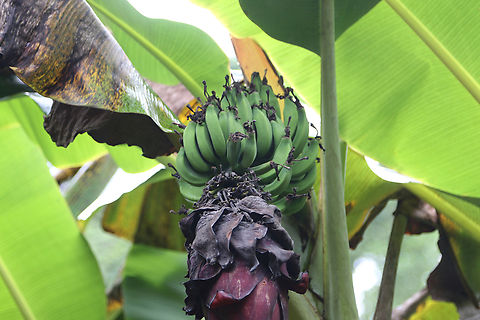
Appearance
It grows lush leaves in clumps with a more upright habit than most cultivated bananas. Flowers grow in inflorescences coloured red to maroon. The fruit are between blue and green. They are considered inedible because of the seeds they contain.Distribution
It is native to eastern South Asia, the eastern regions of the Indian subcontinent, northern Southeast Asia, and southern China. Introduced populations exist in the wild, far outside its native range.Uses
It is assumed that wild bananas were cooked and eaten, as farmers would not have developed the cultivated banana otherwise. Seeded "Musa balbisiana" fruit are called "butuhan" in the Philippines, and "kluai tani" in Thailand, where its leaves are used for packaging and crafts. Natural parthenocarpic clones occur through polyploidy and produce edible bananas, examples of which are wild saba bananas.References:
Some text fragments are auto parsed from Wikipedia.